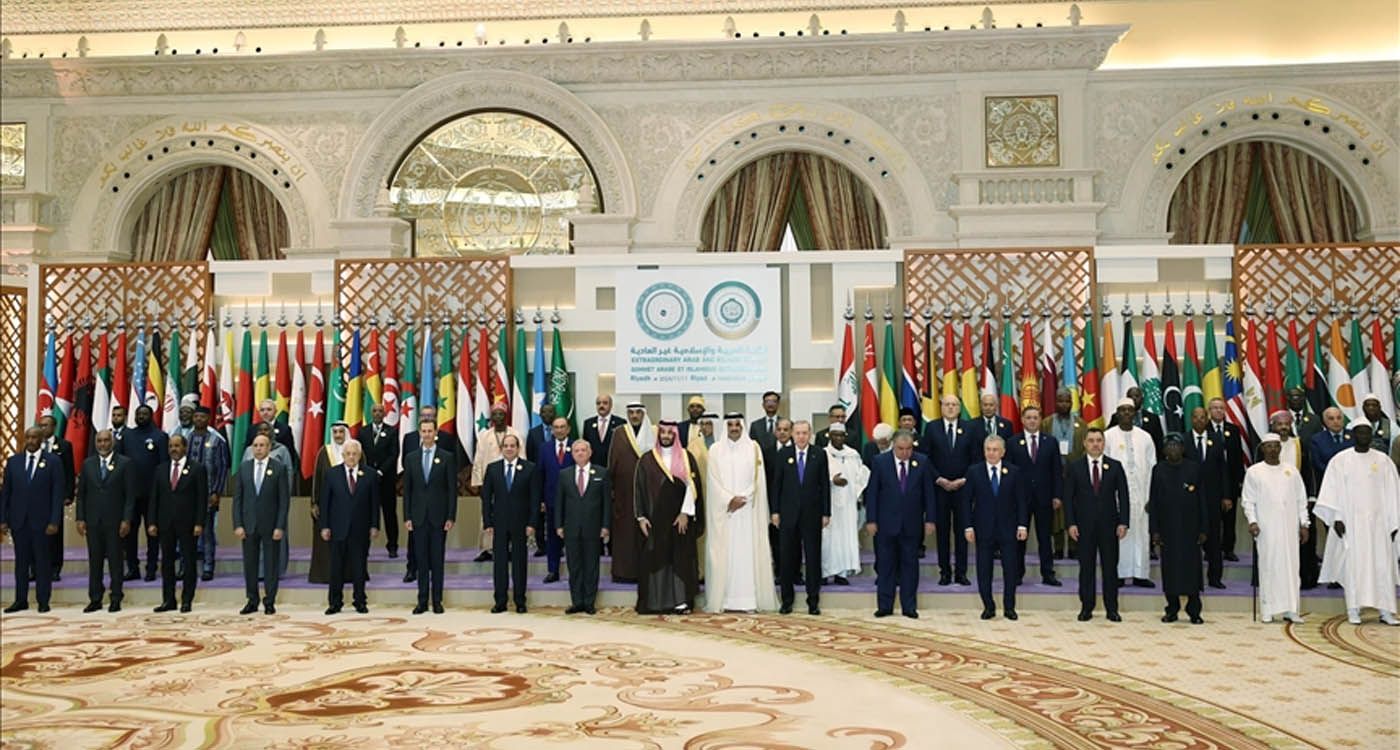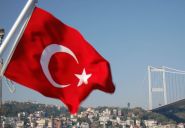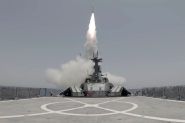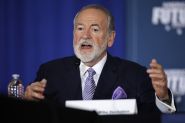- Home
- Middle East
- In Message to Trump, Riyad Summit Calls for Gaza and Lebanon Ceasefires, a Palestinian State

Arab and Islamic leaders Gather at the exceptional summit on Gaza and Lebanon in Riyadh ©This is Beirut
Arab and Muslim leaders gathered in Riyadh on Monday, more than a year into the Israel-Hamas war and regional escalation, in what is seen as a chance to send a message to US president-elect Donald Trump.
Opening the summit, Crown Prince Mohammed bin Salman said the international community must "immediately halt the Israeli actions against our brothers in Palestine and Lebanon", condemning Israel's campaign in Gaza as "genocide".
"(Saudi Arabia) affirms its support for the brothers in Palestine and Lebanon to overcome the disastrous humanitarian consequences of the ongoing Israeli aggression," he said.
A draft resolution for the summit stresses "firm support" for "national rights" for the Palestinian people, "foremost among which is their right to freedom and to an independent, sovereign state".
Just hours earlier, newly appointed Israeli Foreign Minister Gideon Saar said it was not "realistic" to establish a Palestinian state, dismissing it as a "Hamas state".
"I don't think this position is realistic today and we must be realistic," Saar said in response to a question during an appearance in Jerusalem.
Bin Salman, Saudi Arabia's de facto ruler, also called on Israel to respect Iran's sovereignty and refrain from attacking Iranian soil, highlighting warming ties between the Middle East rivals.
He told the summit that the international community should compel Israel "to respect the sovereignty of the sisterly Islamic Republic of Iran and not to violate its lands".
Sunni Muslim-majority Saudi Arabia and Shiite-majority Iran have often found themselves on opposing sides of regional conflicts, including Syria's.
Saudi Arabia and Iran have maintained high-level contact as part of efforts to contain the war that broke out in Gaza following Hamas's unprecedented attack on southern Israel on October 7 last year.
This diplomatic outreach led to the first phone call between Prince Mohammed and Iran's then-president Ebrahim Raisi -- just five days after the war broke out -- and a visit by Raisi to Riyadh a year ago for a joint summit of the Arab League and the Organisation of Islamic Cooperation. Bin Salman then called for immediate ceasefires in Gaza and Lebanon and the establishment of a Palestinian state, a call that is to be renewed on Monday.
In October, Saudi Arabia announced it had held war games with Iran and other countries in the Sea of Oman.
Iranian first Vice President Mohammad Reza Aref said, for its part, that the "world is waiting" for Donald Trump's incoming US government to stop Israel's wars with Hamas and Hezbollah. He also condemned a wave of Israeli assassinations as "organized terrorism".
"The American government is the main supporter of the actions of the Zionist regime (Israel)," Aref stressed.
"The world is waiting for the promise of the new government of this country to immediately stop the war against the innocent people of Gaza and Lebanon."
Since Hamas's October 7, 2023 attacks triggered the war, Israel has killed a number of senior opponents, including Hamas chief Yahya Sinwar and Hassan Nasrallah, Hezbollah's long-time leader.
Israel is also widely believed to have carried out the killing of former Hamas leader Ismail Haniyeh in the Iranian capital Tehran.
The "'targeted killing' (operations)... are nothing but lawlessness and organized terrorism and turn the security apparatus into a tool to kill leaders and citizens of the countries," Aref said.
While Trump has promised peace in the Middle East, during the campaign he said outgoing President Joe Biden should let Israel "finish the job" against Hamas in Gaza.
The Saudi foreign ministry announced plans for the summit in late October during a meeting, also in Riyadh, of a new "international alliance" to press for the establishment of a Palestinian state.
It comes one year after a similar gathering in Riyadh of the Cairo-based Arab League and the Jeddah-based Organisation of Islamic Cooperation during which leaders condemned Israeli forces' actions in Gaza as "barbaric".
This time around, Trump's election last week for a second term in the White House is likely to be on leaders' minds, said Anna Jacobs, senior Gulf analyst for the International Crisis Group think tank.
"This summit is very much an opportunity for regional leaders to signal to the incoming Trump administration what they want in terms of US engagement," she said.
"The message will likely be one of dialogue, de-escalation and calling out Israeli military campaigns in the region."
Robbie Corey-Boulet with AFP
Read more



Comments